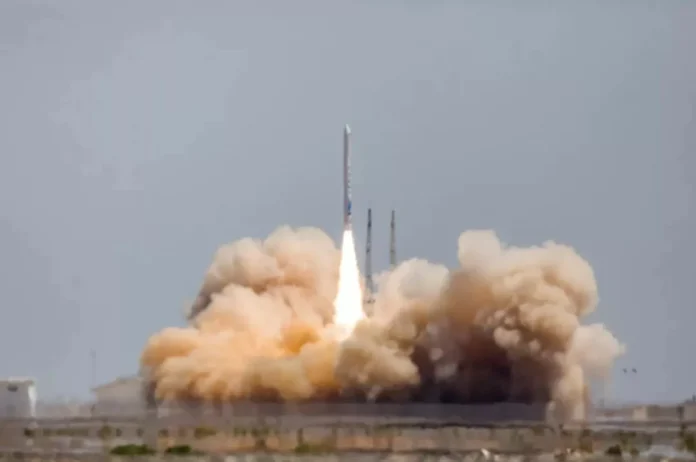Chinese commercial rocket outfit iSpace has faced another setback as it suffered a launch failure late Wednesday. This is the fourth launch failure for the company, raising concerns about the future of China’s commercial space industry. Despite the disappointment, experts and investors remain optimistic about the potential of Chinese commercial rockets and their ability to compete in the global market.
The recent failure occurred during the launch of the Hyperbola-1 rocket, which was carrying two satellites for commercial customers. The exact cause of the failure is still being investigated, but iSpace has assured the public that no one was hurt and there was no damage to the launch site. This is a relief as previous launch failures have resulted in significant damages and injuries.
Founded in 2016, iSpace quickly gained attention and funding from investors due to its ambitious goal of providing affordable and reliable commercial launch services. The company’s rockets are capable of carrying small to medium-sized satellites into orbit at a lower cost compared to its competitors. This has attracted many commercial customers, including several international companies, who are eager to launch their satellites into space.
Unfortunately, iSpace has been facing challenges in delivering on its promises. Despite having a successful debut launch in 2019, the company has since experienced three launch failures. These failures have raised concerns about the reliability of its rockets and have caused delays in launching its customers’ satellites. This has not only affected the company’s reputation but also its financial stability as it relies heavily on revenue from launches.
Nonetheless, the Chinese government and investors continue to show support for iSpace. The company has received significant funding from the government and private investors, including state-owned China Aerospace Science and Technology Corporation. This level of support is a testament to the potential and importance of the commercial space industry in China.
Chinese commercial rockets have been gaining attention in recent years, especially after the successful launch of the Long March 2C rocket by private space company, Landspace, in 2018. This marked China’s first commercial launch attempt, and since then, more private companies have emerged to compete in the market. The government has also shown its support by opening up the launch market for private companies, allowing them to compete with state-owned giants such as China Aerospace Science and Industry Corporation.
The rise of Chinese commercial rockets has sparked excitement and competition in the global market. The country has set its sights on capturing a significant share of the global commercial space industry, which is projected to reach a value of $500 billion by 2028. With its cost-effective and efficient rockets, China has the potential to become a major player in this industry.
Furthermore, Chinese commercial rockets have the advantage of launching from China’s state-of-the-art launch facilities, such as the Wenchang Space Launch Center on Hainan Island. This gives them a competitive edge in terms of cost and efficiency compared to their international counterparts. In addition, partnerships with other space-faring nations, such as Russia and Brazil, have also given Chinese commercial rockets access to other launch sites and resources.
Despite the recent launch failures, experts are confident that iSpace and other Chinese commercial rocket companies have the capabilities to overcome these challenges and succeed in the long run. The failures serve as valuable lessons for the industry, and iSpace has already taken steps to improve its rockets’ reliability. It has also announced plans to launch a new and improved version of its Hyperbola-1 rocket, which will undergo rigorous testing to ensure its reliability.
In conclusion, the recent launch failure of iSpace’s Hyperbola-1 rocket may have caused disappointment, but it should not deter us from recognizing the potential of Chinese commercial rockets. The setbacks and challenges faced by the industry are inevitable but should not overshadow the significant progress and achievements made by these companies. As the industry continues to grow and evolve, we can expect to see more successful launches and achievements in the future. It is an exciting time for the Chinese commercial space industry, and we should continue to support and be inspired by their innovation and determination.

